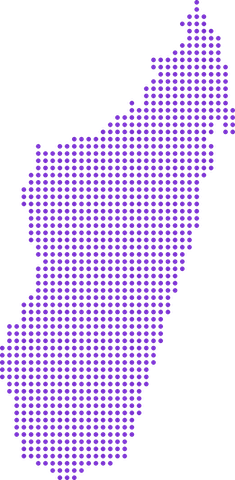Pandemic fund project - Madagascar

Plague outbreak in Madagascar – 2017. WHO trained more than 4400 people to work as ‘contact tracers’ to help prevent plague from spreading further in hard-hit areas. © WHO
Madagascar
Madagascar, one of the world’s most climate-vulnerable island nations, is using its Pandemic Fund allocation to strengthen national emergency preparedness and response (EPR) systems through a One Health approach. This investment targets rising health risks from climate variability, food insecurity and zoonotic disease threats, while contributing to regional health security in Southern Africa.

ALLOCATION
US$ 41 M
PARTNERS
FAO , Ministry of Health, IOM,
Ministry of Education
NATIONAL STEERING COMMITTEE
Climate-related health challenges
Ranked 29th on the Global Climate Risk Index, and among the 50 least developed countries, Madagascar’s rural population and fragile infrastructure make it especially vulnerable to the health impacts of climate disasters – prolonged droughts in the south, floods in the east, and frequent coastal storms and cyclones.
These climate extremes drive widespread food and water insecurity, especially in the south and southwest, where recurring droughts cause chronic malnutrition and famine-like conditions. Climate change also shifts disease patterns and compounds health burdens. Malaria, cholera and respiratory illnesses often follow climate shocks, exacerbated by poor water, sanitation and health systems.
Rising temperatures and drier habitats could expand the reach of vector-borne diseases such as malaria and dengue. Air pollution from deforestation and bushfires increases respiratory risks, while biodiversity loss weakens natural barriers to zoonotic diseases.
Early warning and disease surveillance systems
Madagascar will overhaul its surveillance systems by:
- Developing climate-health risk assessment models using tools like STAR.
- Strengthening One Health coordination through policy briefs, high-level dialogues and integration into national strategies.
- Enhancing detection under the Integrated Disease Surveillance and Response (IDSR) Technical Guidelines 3rd Edition, improving surveillance protocols, and bosting laboratory capacity.
- Upgrading electronic surveillance and creating platforms linking weather and health data.
- Enhancing event-based surveillance via the Epidemic Intelligence from Open Sources (EIOS) initiative, and predictive outbreak modelling.
- Improving community-based surveillance, real-time reporting and risk communication.
A national integrated surveillance strategy will support these efforts, backed by indicator development, stakeholder training and coordination.
Laboratory systems
To strengthen diagnostic readiness, Madagascar will:
- Build an integrated laboratory network spanning human, animal and environmental health.
- Strengthen reference laboratories and Community-Based Rehabilitation sites to detect priority diseases, including influenza, arboviruses and antimicrobial resistance (AMR).
- Equip laboratories with biosafety infrastructure, reagents and transport systems for biological samples, supported by Standard Operating Procedures (SOPs) and multisectoral training.
- Train laboratory personnel in biosafety, surveillance and AMR monitoring.
- Improve tracking of health care-associated infections (HAIs) and AMR across sectors.
Strengthening human resources and public health workforce
The country will boost human resource capacity by:
- Training cross-sectoral teams (animal, food safety, environment, health) through simulation exercises and standardized curricula.
- Conducting joint field epidemiology and simulation exercises at points of entry, with tailored modules and cross-border protocols.
- Updating and localizing AVoHC SURGE manuals, with a focus on climate, zoonotic and food-borne threats.
- Creating a national roster of deployable experts and a centralized workforce database for surge coordination.
Other goals
Madagascar will:
- Develop public health emergency operations centres (PHEOCs) with joint simulations, equipment and digital tools.
- Launch a Leadership Capacity-Building Programme and create a Gender-Responsive, Multidisciplinary Leadership Network aligned with the Global Health Emergency Corps.
- Create joint SOPs and platforms to strengthen EPR leadership, coordination and cross-sector learning.
Partnerships & implementation
WHO will collaborate closely with the country’s Ministries of Health and Education, alongside the Food and Agriculture Organization (FAO) and the International Organization for Migration (IOM) to support implementation. A steering committee has been established to provide oversight and monitor progress.


